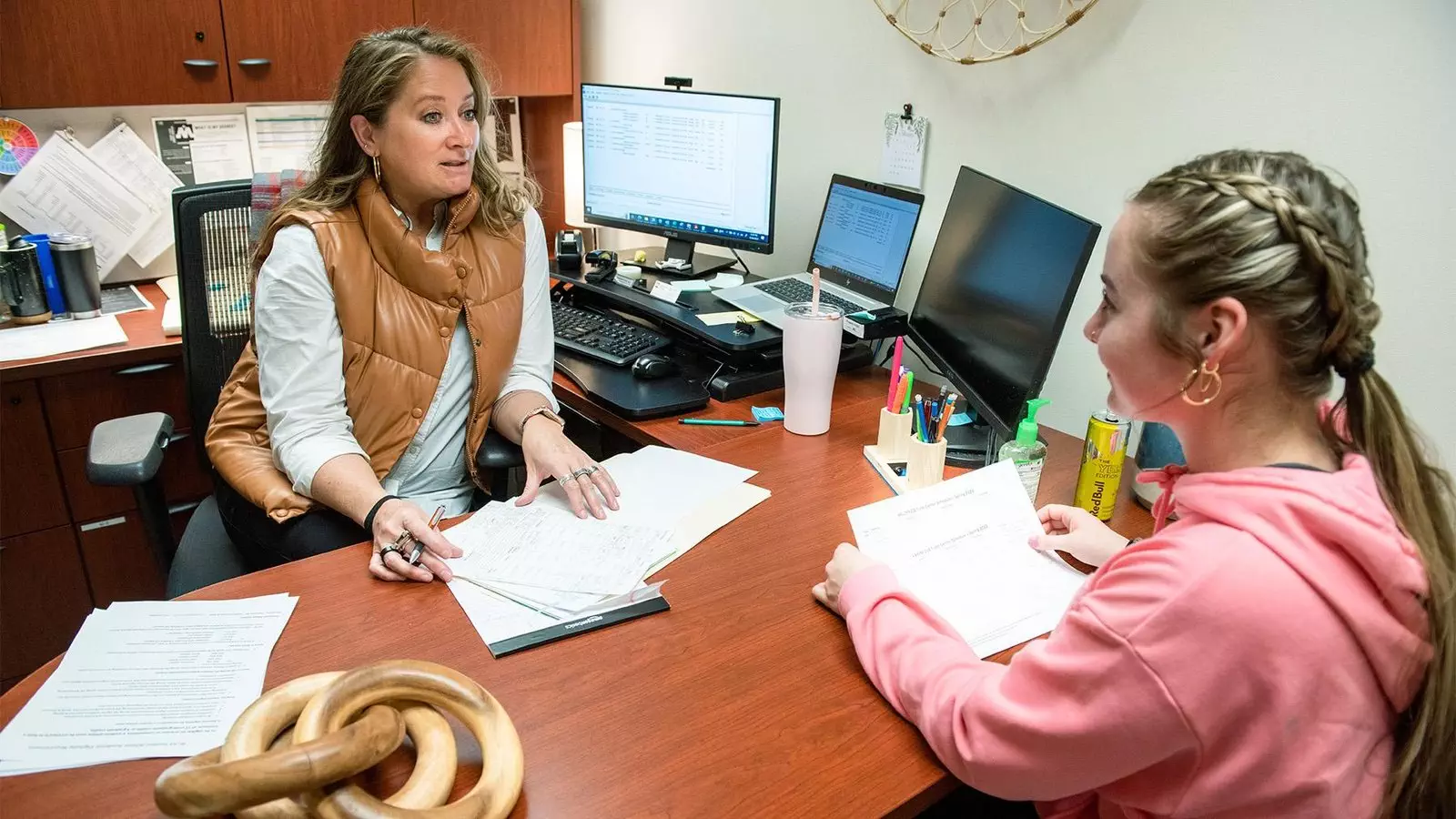International education is an increasingly popular choice for students seeking a well-rounded education that sets them up for success. For many international students, however, adjusting to a new educational system and culture can be challenging. This is where an international student advisor comes in to offer guidance and support throughout the student’s academic journey. But what are the skills and competencies that make for a successful international student advisor? In this article, we will explore the top skills needed for international student advisors in their role in supporting international students.
Understanding the Role of an International Student Advisor
To be an effective international student advisor, a fundamental understanding of the role is essential. At the core of their work, an international student advisor must help international students navigate the complexities of the educational system and provide guidance and support on various academic, social, and personal matters.
Key Responsibilities and Duties
One of the primary responsibilities of an international student advisor is to help international students adjust to the unique features of the educational system in their foreign country. This includes assisting with the understanding of academic standards, course selection, and requirements for graduation. Additionally, a crucial part of an advisor’s role is to connect international students with opportune resources, such as tutoring services, academic accommodations, and career guidance.
Another important aspect of an international student advisor’s responsibilities is to provide guidance and support on social and personal matters. This includes helping students navigate cultural differences and adjust to life in a new country. Advisors can provide information on local customs, traditions, and events, as well as connect students with social groups and activities to help them feel more integrated into their new community.
International student advisors also play a critical role in helping students maintain their immigration status. This includes providing guidance on visa regulations, work authorization, and travel restrictions. Advisors must stay up-to-date on the latest immigration policies and regulations to ensure that international students are aware of any changes that may impact their status.
The Importance of Cultural Sensitivity
In working with international students, advisors must demonstrate cultural sensitivity and awareness to navigate the diversity that different cultures bring. Understanding the cultural differences in communication patterns, social norms and practices, and views on education is critical in effectively helping students adapt to their new environment. International student advisors must provide non-judgmental support and show respect towards all students, regardless of cultural or linguistic backgrounds.
Moreover, advisors must recognize that international students may face unique challenges and barriers in their academic and personal lives, such as language barriers, homesickness, and cultural adjustment issues. Advisors must be empathetic and supportive, and provide resources and referrals to help students overcome these challenges.
Finally, international student advisors must also advocate for the needs and interests of international students within the institution. This includes working with faculty, staff, and administrators to create a welcoming and inclusive environment for international students, and advocating for policies and programs that support their success.
Essential Communication Skills
Communication is a vital skill for international student advisors. It is the key to building and maintaining positive relationships with international students, leading to trust and confidence that enhances the student’s learning experience. Effective communication skills help advisors to understand the unique experiences and challenges of international students and respond appropriately to their concerns and feedback.
International student advisors must possess excellent listening skills, be empathetic and have an open-minded approach to student concerns. Active listening and empathy are essential for working through problems to find long-term solutions with the student’s best interest in mind. An advisor’s role also involves being supportive and acknowledging the difficulties that students face, providing reassurance and helping them to build self-esteem and resilience.
Active Listening and Empathy
Active listening involves paying attention to what the speaker is saying, asking clarifying questions, and providing feedback to show that you are engaged and interested in what they are saying. Advisors must listen attentively to student issues and be patient to work through problems. Empathy involves understanding the student’s perspective and feelings, and responding in a way that shows that you care about their well-being.
International student advisors must be able to put themselves in the student’s shoes and see things from their perspective. This involves being non-judgmental, respectful, and understanding of the student’s cultural background and personal situation. Advisors must be able to communicate with students in a way that is sensitive to their needs and concerns, and that takes into account their unique experiences and challenges.
Verbal and Written Communication
Strong verbal and written communication skills are necessary for international student advisors to make an impact. Advisors must be able to communicate information and advice in an accessible, understandable, and sensitive manner, whether in-person or via email. It is vital to provide clear and concise guidance that aligns with the student’s academic goals, learning style, cultural background, and personal situation.
International student advisors must be able to communicate effectively with students from diverse cultural backgrounds. This involves being aware of cultural differences in communication styles, such as directness, formality, and use of nonverbal cues. Advisors must be able to adapt their communication style to meet the needs of the student, while still maintaining clarity and effectiveness.
Cross-Cultural Communication
Cross-cultural communication skills are crucial in understanding how cultural differences impact the student’s learning experience. Effective cross-cultural communication skills involve a deep understanding of diverse cultures, as well as an awareness of nonverbal communication, sense of humor, and cultural customs. By recognizing and respecting cultural differences, advisors can create a comfortable and supportive environment for the students they serve.
International student advisors must be able to navigate cultural differences and communicate effectively with students from diverse backgrounds. This involves being aware of cultural norms and customs, such as greetings, gestures, and body language. Advisors must be able to adapt their communication style to meet the needs of the student, while still maintaining clarity and effectiveness.
Overall, effective communication skills are essential for international student advisors to build and maintain positive relationships with international students. Advisors must be able to listen actively, show empathy, communicate clearly and effectively, and navigate cultural differences. By doing so, advisors can help international students to succeed academically, socially, and personally.
Knowledge of International Education Systems
To be a successful international student advisor, having a deep understanding of different educational systems worldwide is crucial. Advisors need to be intimately familiar with the academic standards, curriculum requirements, and campus resources available to students. This knowledge helps the advisor provide well-informed guidance to international students, helping them to navigate their academic journey successfully.

Familiarity with Different Educational Structures
International student advisors need to know the differences between educational systems worldwide. The advisor must be knowledgeable on the curriculum and student life requirements in international universities so that they can provide excellent advice to students. This may involve preparing students for academic expectations and assisting them with selecting appropriate courses and programs in line with their academic career goals.
For example, in some countries, students are required to choose their major before they start university, while in other countries, students can take a variety of courses before deciding on their major. Advisors must be aware of these differences and help students navigate the system that they are not familiar with.
Additionally, advisors should be familiar with the grading systems used in different countries. For instance, in some countries, a grade of 60% is considered excellent, while in other countries, a grade of 90% is required to be considered excellent. Understanding these differences is critical for evaluating a student’s academic progress and providing appropriate advice.
Understanding Visa and Immigration Requirements
Another essential component of an international student advisor’s work is a knowledge of visa and immigration requirements. This means having a comprehensive understanding of laws and regulations related to visas, employment eligibility, and other requirements. Advisors must be knowledgeable about immigration documentation and procedures to guide international students who plan to travel to and from different countries for academic or personal reasons.
Advisors should also be aware of any changes in immigration policies that may affect their students. For example, changes in visa requirements or travel restrictions can significantly impact an international student’s ability to study abroad. Advisors must stay up-to-date with these changes and inform their students accordingly.
Navigating Academic Transcripts and Credentials
Advisors need to know how to interpret academic transcripts and credentials from other countries and recognize their equivalencies in the student’s new academic environment. International student advisors should have the ability to evaluate and compare academic records from various educational contexts and inform students of their academic progress towards their degree.
It is also essential for advisors to understand the accreditation process of different universities and how it affects the value of a student’s degree. This knowledge can help advisors guide students towards reputable institutions that will provide them with a quality education and a recognized degree.
In conclusion, international student advisors must have a deep understanding of different educational systems worldwide, visa and immigration requirements, and academic transcripts and credentials. This knowledge enables them to provide excellent advice and guidance to international students, helping them to navigate their academic journey successfully and achieve their academic and career goals.
Advising and Counseling Skills
Advising and counseling skills are crucial for an international student advisor to effectively support and guide students throughout their academic journey. Advisors must possess emotional intelligence, flexibility, and a deep understanding of the unique challenges that international students face when studying abroad.
As an international student advisor, it is essential to build strong relationships with students to provide them with the necessary support and guidance. This requires active listening skills, empathy, and the ability to effectively communicate with students from diverse cultural backgrounds.
Academic Advising and Course Selection
One of the primary responsibilities of an international student advisor is to assist students in selecting courses that align with their academic background, career goals, and personal preferences. To do this effectively, advisors must have a deep understanding of academic programs and career opportunities in various fields.
Advisors must also be aware of the requirements for international students to maintain their visa status and ensure that students are enrolled in courses that meet these requirements. By providing personalized academic advising, advisors can help students make informed decisions and achieve their academic goals.
Career Counseling and Job Placement
International student advisors must also provide career counseling and job placement support to students. This involves helping students identify their career goals and objectives, developing job search strategies, and preparing them for job interviews.
Advisors must have experience working with various companies, industries, and organizations to guide students in seeking employment opportunities that align with their career interests and experiences. By providing students with career guidance and support, advisors can help them achieve their career aspirations.
Personal and Mental Health Support
The emotional, spiritual, and mental health of international students can significantly impact their academic success. Therefore, international student advisors must provide personalized and professional mental health support to students.
This involves offering guidance on substance abuse, family and relationship issues, and mental health support. Advisors must also be aware of the cultural differences that may impact how students seek help and provide support that is sensitive to these differences.
By providing comprehensive personal and mental health support, advisors can ensure that students are adequately supported in all areas to achieve their full potential.
In conclusion
In conclusion, the job of an international student advisor is challenging but rewarding. With their unique set of skills, advisors make an incredible difference in the lives of the international students they serve. To be effective, advisors must possess excellent communication skills, a deep understanding of international education systems, counseling skills, and be culturally sensitive. By following these guidelines, advisors can not only increase students’ academic success but also improve their quality of life during their journey abroad.



